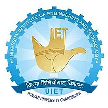Why Accreditation?
The purpose of the accreditation by NBA is to promote and recognize excellence in technical education in colleges and universities—at both the undergraduate and postgraduate levels. Institutions, students, employers, and the public at large all benefit from the external verification of quality provided through the NBA accreditation process. They also benefit from the process of continuous quality improvement that is encouraged by the NBA’s developmental approach to promote excellence in technical education.
Through accreditation, the following main purposes may be served:
- support and advice to technical Institutions in the maintenance and enhancement of their quality of provision.
- confidence and assurance on quality to various stakeholders including students.
- assurance of the good standing of an Institution to government departments and other interested bodies.
- enabling an Institution to state publicly that it has voluntarily accepted independent inspection and has satisfied all the requirements for satisfactory operation and maintenance of quality in education.
Impact of Accreditation
The purpose and impact of accreditation goes far beyond quality assurance of an Institution/programme. Major impacts of accreditation system are summarized below
- Encourages quality improvement initiatives by Institutions,
- Improves student enrolment both in terms of quality and quantity,
- Helps the Institution in securing necessary funds,
- Enhances employability of graduates,
- Facilitates transnational recognition of degrees and mobility of graduates and professionals,
- Motivates faculty to participate actively in academic and related Institutional / departmental activities,
- Helps create sound and challenging academic environment in the Institution, and Contributes to social and economic development of the country by producing high quality technical manpower.
Benefits and Significance of Accreditation
The process of accreditation helps in realizing a number of benefits, such as:
- Helps the Institution to know its strengths, weaknesses and opportunities.
- Initiates Institutions into innovative and modern methods of pedagogy
- Gives Institutions a new sense of direction and identity.
- Provides society with reliable information on quality of education offered.
- Promotes intra and inter-Institutional interactions.
Accreditation signifies different things to different stakeholders. These are:
Benefits to Institutions:
Accreditation is market-driven and has an international focus. It assesses the characteristics of an Institution and its programmes against a set of criteria established by National Board of Accreditation.
NBA’s key objective is to contribute to the significant improvement of the Institutions involved in the accreditation process. Accreditation process quantifies the strengths, weaknesses in the processes adopted by the Institution and provides directions and opportunities for future growth.
NBA accredited Institutions may be preferred by funding agencies for releasing grants for research as well as expansion etc.
It signifies that the Institutional performance is based on assessment carried out through a independent competent body of quality assessors, with strengths and weaknesses emanating as a feedback for policy-making.
NBA provides a quality seal or label that differentiates the Institutions from its peers at the national level. This leads to a widespread recognition and greater appreciation of the brand name of Institutions and motivates the Institutions to strive for more.
Benefits to Students:
Students studying in NBA accredited Institutions can be assured that they will receive education which is a balance between high academic quality and professional relevance and that the needs of the corporate world are well integrated into programmes, activities and processes. It signifies that he has entered the portals of an Institution, which has the essential and desirable features of quality professional education.
Benefits to Employers:
Accreditation assures prospective employers that students come from a programme where the content and quality have been evaluated, satisfying established standards. It also signifies that the students passing out have acquired competence based on well-established technical inputs.
Benefits to the Public:
Accredited status represents the commitment of the programme and the Institution to quality and continuous improvement.
Catalyst for International Accreditations:
Due to accreditation from NBA, the Institution’s systems and procedures get aligned with the Institution’s Mission and Vision. All essential prerequisites for international accreditation are included in the accreditation process of NBA. Therefore, NBA acts as a catalyst for the Institutions planning to acquire International Accreditation.
Benefits to Industry and Infrastructure Providers:
It signifies identification of quality of Institutional capabilities, skills and knowledge.
Benefits to Parents:
It signifies that their ward goes through a teaching-learning environment as per accepted good practices.
Benefits to Alumni:
It reassures alumni that alumni are products of an institute with a higher standing in terms of learning.
Benefits to Country:
Accreditation helps in gaining confidence of stakeholders and in giving a strong message that as a country, our technical manpower is of international standards and can be very useful in enhancing the global mobility for our technical manpower.
Need of Accreditation
Accreditation of educational Institutions/programmes is a global practice and its need has been felt by various developing and developed countries for one or more of the following purposes.
- Funding decisions
- State recognition of qualification/ certification of professionals
- Accountability of Institutions to stakeholders
- Encouraging self improvement initiatives by Institutions
- Quality assurance of educational programme
Accreditation may be summarized as a process, based on professional judgment, for evaluating whether or not an educational Institution or programme meets specified standards of educational quality. Its primary purpose is to assure prospective students and public that graduates of an Institution, conducting various programmes, have achieved a minimum level of competence in their chosen fields of study, thus serving as a form of consumer protection. In many countries, accreditation is the legal responsibility of ministry of education or other governmental agencies.
